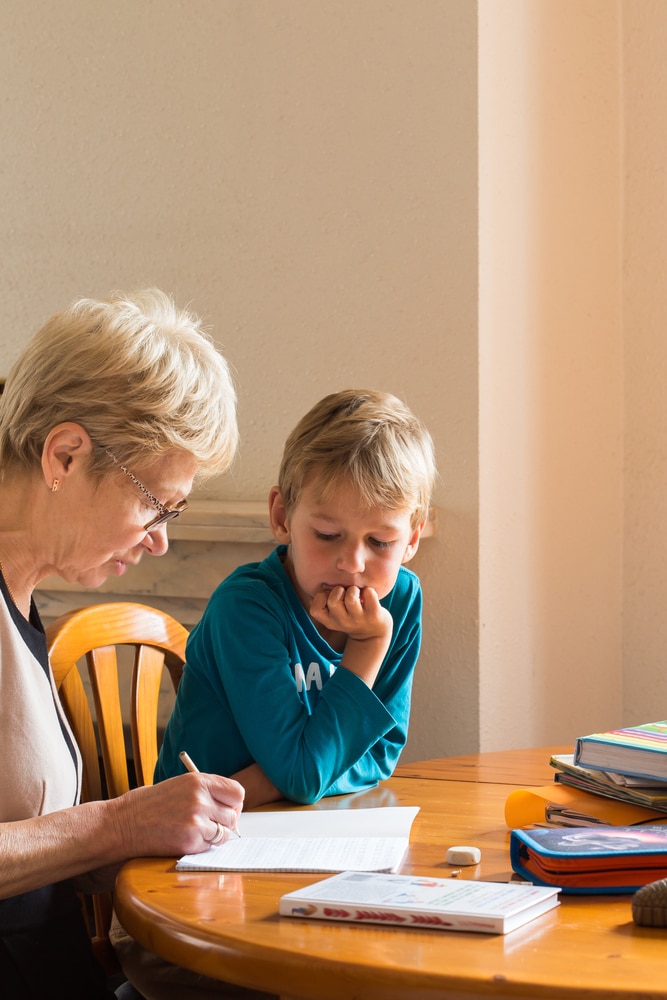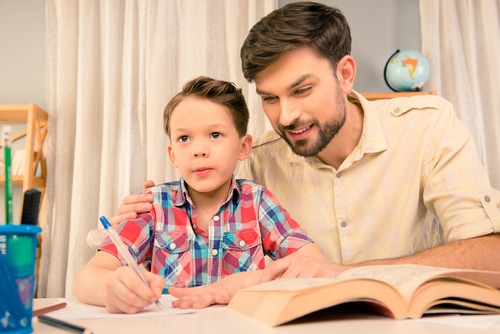By the age of 5, most children have the following skills:
Receptive Language:
- Understand opposites, e.g. high/low, wet/dry, big/little
- Understand words for order e.g. after, then, last, first, next
- Understand ‘time’ words such as yesterday, tomorrow, later
- Follow three-step directions, e.g. “Stand up, get you shoes on and wait by the door
Expressive Language:
- Use complete sentences with correct grammar
- Talk about events which are happening, have happened or might happen
- Explain why something happens, e.g. “Mum’s car stopped because the petrol ran out”
- Explain the function of objects, e.g. “This tie keeps my hair away”
- Talk about feelings and share ideas
- Speak clearly and should be understood by anyone
- Use all pronouns correctly (he, she, him, her, I, you, them)
- Use past, present and future tenses of verbs (sit, sitting, sits, will sit)
- Starting to use some irregular verbs (drank, fell)
- Explain details that occurred in the past with accurate detail
- Can keep a conversation going


Sounds used in play, babble or words:
- p
- b
- m
- w
- p
- b
- m
- w
- p
- b
- m
- w
- h
- n
- t
- d
Play:
- Play alone or alongside child
- Use concrete objects to play
- Will use objects in play (e.g. pretend to drink from a cup)
- Will carry out an action on an object (e.g. feed doll, pretend to sweep floor)
Literacy:
- Listen and attends to stories
- Stories have a central character or event. There is a sequence of events that relate to the main character or event. Sentences are often linked with ‘and then’ or ‘and’
- Become interested in writing, numbers &reading things (road signs, etc)
- Break words into syllables
- Generate words that rhyme
- Identify the 1st sound in words (in particular own name, classmates, etc)
- Begin to break simple words into individual sounds (e.g. c-a-t)
- Know sounds related to letters
Cause for concern:
- Unable to follow instructions at school
- Uses short sentence
- Makes many grammatical errors
- Showing little interest in letters, reading and writing
- Unable to generate rhyming words
- Finds it difficult to break words into syllables
- Limited ability to identify the sound a word begins with
- Making errors producing sounds (at this age it is children will still make errors when producing the sounds ‘r’ and ‘th’)
- Unable to accurately recount events from the past



If you have any concerns regarding your child’s language development, feel free to complete the checklist for a speech pathologist to reviewv
